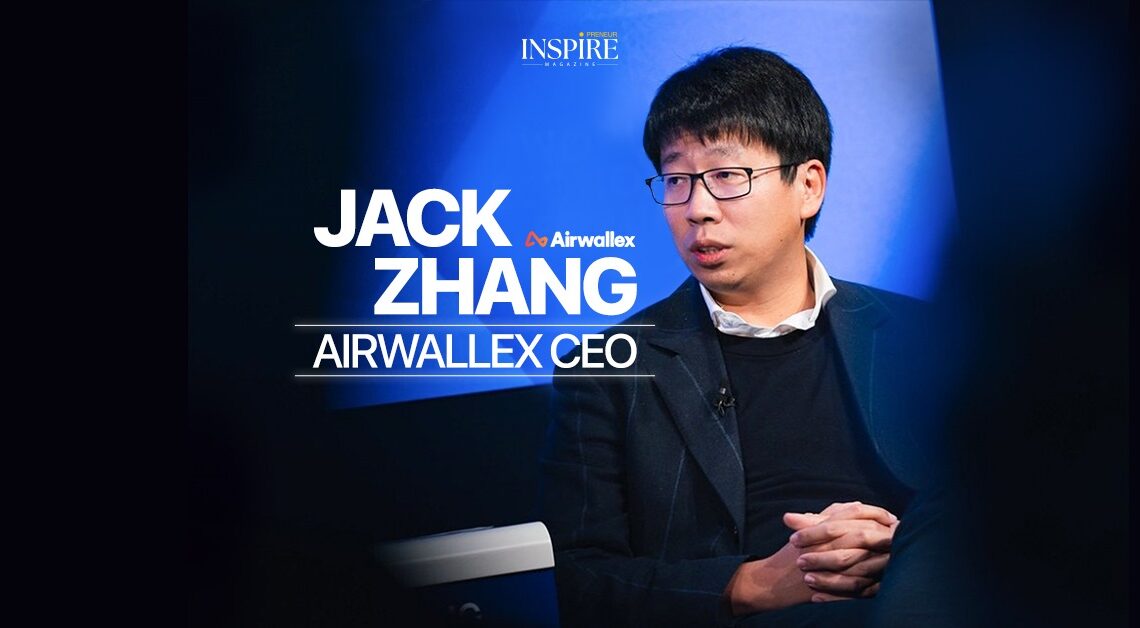
I stumble across a lot of stories online about fintech start-ups successes and failures, and really enjoyed reading the story of Airwallex by Thomas Yeddou on the Fintech Society newsfeed (worth subscribing). It's a lengthy story of one Jack Zhang. Who is Jack? Well, you need to read the whole thing to find out, but here’s a quick summary.
Jack comes from Qingdao, China. A “small city,” as he says, with eight million people!
Growing up, which was not an easy time as he was with his grandparents due to mom and dad being in banking, what Jack really wanted was to work at Microsoft. He loved math and physics, and was one of the brightest students in the city.
But then, at the tender age of 15, his parents sent him to Australia. “I went from, academically, the top 100 in my school to some random student that didn’t speak English very well,” he remembers. Then, when he returned to China, he found his father had lost his job and was bankrupt.
Having said that, Jack had a knack for business and, whilst having a day job in finance, launched a heap of side businesses which were successful. From property development to a burger chain, a wine and olive oil trading company, and a café in Melbourne, his entrepreneurial spirit created success.
After a few years, he was generating millions in revenue. All while keeping his day job in banking.
You might sit back at that point and think: been there, done that; but not Jack.
That’s when he created Airwallex in 2015, with his friends who had helped make the sideline businesses successful.
Airwallex began with dealing with all of the issues of cross-border payments, a little like TransferWise and Revolut. It was through his café business, where he had to import coffee, that Jack realised how complex cross-border payments are for a business and, with his background in banking, he decided to take on the problem.
Sounded like a good plan but Airwallex’s first two products were total failures. There were many ways to approach the topic of cross-border payments, and they didn’t pick the right ones. The first idea was to do peer-to-peer, but the volume needed to make the model work was way too high. The second idea was to build an invoicing solution to help Australian e-commerce sellers get paid from China. Another failure.
Money was running out and Jack was reaching the end of the line. There were only six weeks of cash left and no plan B … but then Sequioa and Tencent stepped in. With their help, Airwallex raised a $13 million Series A investment and, with this new investment, the team could start iterating on a third product.
The result?
The company spent 2017 building an API-product that allows businesses to send and receive international payments with lower fees and faster settlement than traditional banks and, this time, they got it right. In 2018, Airwallex went from processing $0 in January to over $1 billion by the end of the year, which is when Stripe’s Patrick Collison came sniffing and made them an offer to acquire them.
Airwallex’s presence in Asia-Pacific was highly attractive to Stripe, the California-based company, as was its deep expertise in cross-border payments. Patrick and his team lined up a deal to acquire Airwallex for $1.2 billion. This was when Airwallex was only generating $2 million in revenue. Surely that’s an offer you can’t refuse?
Urmmm … well … Jack and his co-founders ultimately rejected the offer.
A bold move, but one that has ultimately paid off as, by June 2025, Airwallex surpassed $800 million in annualised revenue, up 90% from the previous year, and exceeded $130 billion in annualised global payment volume.
The company is now valued at $6.2 billion, after a $300 million Series F in May 2025, bringing total funding to over $1.2 billion.
This will be an interesting IPO that is likely to happen next year. Watch this space and read the whole article if you want more detail.
Chris M Skinner
Chris Skinner is best known as an independent commentator on the financial markets through his blog, TheFinanser.com, as author of the bestselling book Digital Bank, and Chair of the European networking forum the Financial Services Club. He has been voted one of the most influential people in banking by The Financial Brand (as well as one of the best blogs), a FinTech Titan (Next Bank), one of the Fintech Leaders you need to follow (City AM, Deluxe and Jax Finance), as well as one of the Top 40 most influential people in financial technology by the Wall Street Journal's Financial News. To learn more click here...

